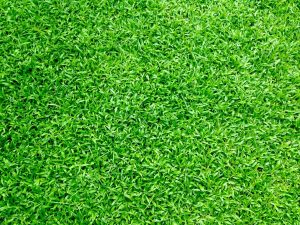Choosing the Right Grass for Your Lawn

Having a great looking lawn can have a huge effect on the appeal of your commercial property. Knowing which type of grass will work best for your property will depend on a few different factors. Some things to consider are:
- How much water does the grass need?
- How quickly/how high does the grass grow?
- Will I need to frequently apply fertilizer, pesticides, or fungicides?
- Does your commercial property get sun all day long, or is it shady?
Choosing the correct grass for your property, location and planned maintenance schedule will help to ensure greener lawns.
5 Best Grasses to Use in Colorado
We have put together a list of the most common grass types in Colorado, along with their upsides and downsides. We hope that this list will help you make a decision on which grass is the best fit for your property:
Kentucky Bluegrass – Cool Season
Kentucky bluegrass (KBG) is hands-down the most widely-used lawn grass in Colorado. It is renowned for its dark green, almost blue color, and soft blades. KBG is extremely cold tolerant. During hot summer weather or drought, KBG will go dormant but recuperates quickly. It also spreads quickly and creates a thick turf, making it resistant to heavy foot traffic.
Kentucky bluegrass can be prone to disease or pests. It also forms a lot of thatch (a layer of living and dead organic matter that accumulates near the base of grass and plants), so yearly aeration of your lawn is a good idea. KBG may also require more irrigation than some other grasses to thrive.
Buffalo Grass – Warm Season
Buffalo grass grows remarkably well in Colorado even though it is a warm-season grass. This drought-resistant grass requires little water or fertilizing, which can save money on irrigation and lawn care. Buffalo grass is also low-growing, so it needs to be mowed less often. It is resistant to disease and pests as well.
Buffalo grass grows best at elevations below 6500 feet, which is good for the Denver area, but not so good for other places in Colorado. Because it is a warm-season grass it also has a short growing season, which is usually from May-September in Colorado. Buffalo grass is not a very thick turf, so it tends to get weeds more often than some other grasses.
Tall Fescue – Cool Season
Tall fescue grass establishes itself and germinates more quickly than Kentucky Bluegrass. It has a very deep root system that can reach down 2 or 3 feet; this makes tall fescue very heat- and drought-resistant. Tall fescue can tolerate shade better than most other cool-season grasses, and it also does not form very much thatch.
While tall fescue establishes and germinates quickly, it spreads slowly. It does not self-repair easily from damage, making it not the best choice for high-traffic areas. In wet conditions, tall fescue is also susceptible to disease and pests, so good soil drainage is essential.
Fine Fescue – Cool Season
Fine fescue grass consists of a few different types that are often sold as a blended seed mix. Fine fescue is very drought-resistant and can survive extreme cold. It is also low-maintenance, requiring less frequent mowing and fertilizing, making it very eco-friendly.
Just like tall fescue, fine fescue is susceptible to disease and pests in wet conditions. Fine fescue is not very heat tolerant, preferring shade more than other cool-season grasses. It also does not do well in areas with heavy foot traffic.
Perennial Ryegrass – Cool Season
Perennial ryegrass has good cold tolerance. It germinates and establishes quickly and does not form very much thatch, hardly ever needing aeration. It is commonly used in combination with warm-season grass. The perennial ryegrass will create a short-term green lawn in the winter months, and will slowly die out as the warm-season grasses turn green again.
Like tall fescue, perennial ryegrass is a bunch-forming grass and spreads slowly. It also tends to be disease prone. The biggest drawback is that perennial ryegrass has higher watering and fertilizer needs compared to most other grasses.
Looking to improve the appearance of your commercial property’s lawn?
Whether you plan on reseeding your lawn or making any other landscape enhancements, GroundMasters Landscape Services has the experience and know-how to give your Denver area commercial property the make-over and maintenance it deserves. In addition to lawn care and landscape enhancements, we also offer irrigation system services, tree and shrub care, storm cleanup, and even snow and ice removal for year-round grounds management. Give us a call today at (303) 750-8867 or contact us online today to get started.
